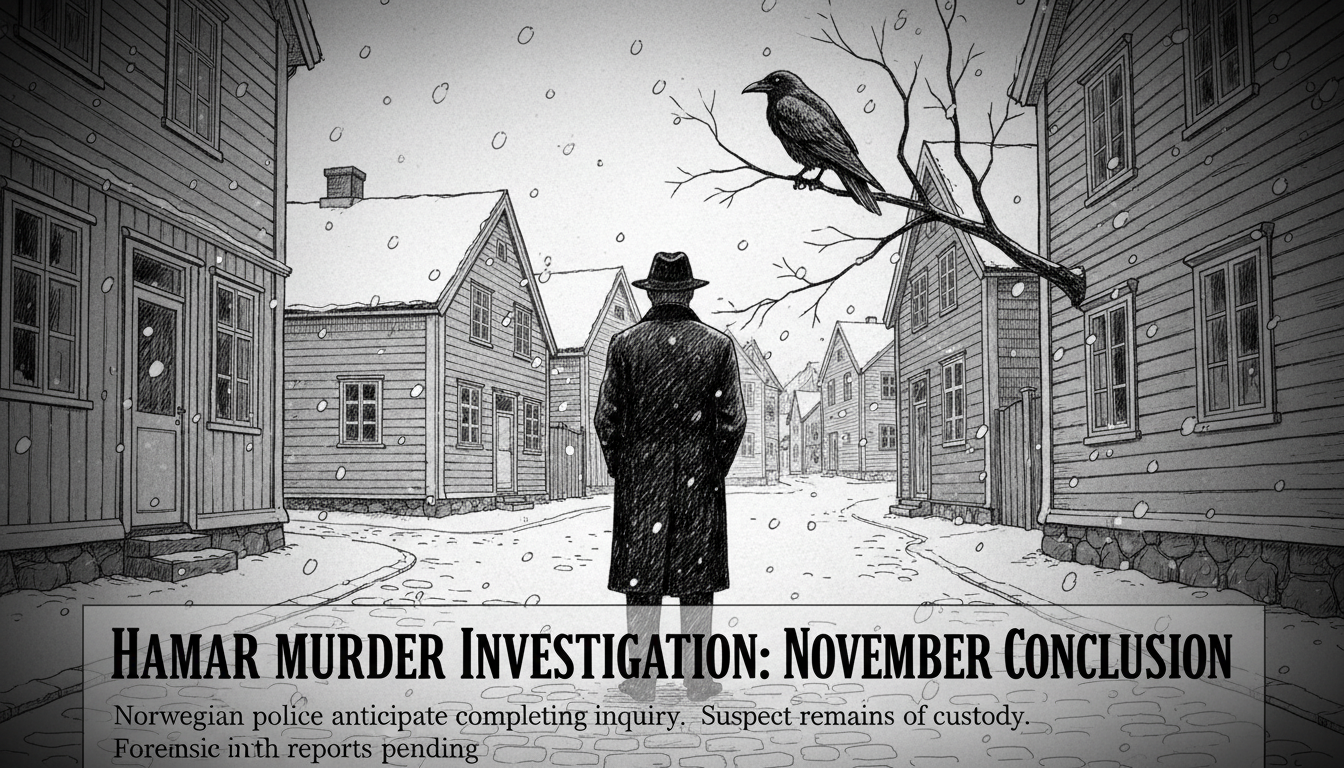Police in Norway's Innlandet district expect to complete their investigation into the murder of Heidi Sagen by November. The 58-year-old woman was found dead in a Hamar residence in February.
Lead prosecutor Anders Møllersen confirmed the timeline in a recent statement. He said investigators aim to finish their work during November. Then the case must proceed through Norway's legal hierarchy.
Møllersen explained the next steps. He will submit recommendations to the district prosecutor first. Then the case moves to Norway's chief public prosecutor, who holds indictment authority for this matter.
The investigation still awaits the official autopsy report. Møllersen acknowledged delays at the National Institute of Forensic Medicine. He expressed hope for receiving the report soon but recognized current pressure on forensic services nationwide.
Norwegian court proceedings operate on established timelines. The preliminary trial date for this case is set for May next year. Møllersen anticipates any formal charges would come early in the new year.
This week, prosecutors secured an eight-week custody extension for the suspect. The man in his thirties has confessed to the killing according to court documents.
Norway's legal system moves deliberately in serious cases. The thorough investigation reflects standard procedure for homicide cases. Police must build comprehensive evidence before proceeding to trial.
The Hamar community has followed this case closely since February. Local residents await justice for the victim while police complete their meticulous work. The November timeline provides some clarity about when the legal process might advance.
What does this investigation timeline reveal about Norwegian justice? The system prioritizes thoroughness over speed, ensuring all evidence receives proper examination. This approach reflects Norway's methodical legal culture where comprehensive investigations precede courtroom proceedings.
International observers might note differences from other justice systems. Norway's layered prosecution structure requires multiple approvals before serious cases reach trial. This creates additional checks but also extends the pre-trial period compared to some countries.
The suspect remains in custody while investigators complete their work. Norwegian law permits extended detention for serious crimes when sufficient evidence exists. The confession likely strengthened the prosecution's request for continued custody.
Forensic delays affect many criminal investigations across Scandinavia. Backlogs at medical institutes sometimes slow legal processes. This reality highlights resource challenges within Nordic justice systems despite their generally efficient reputations.

